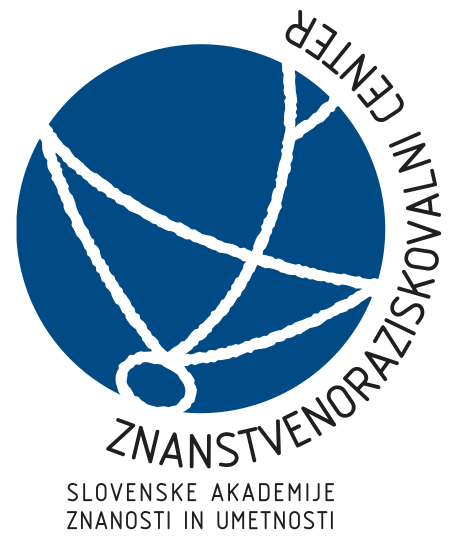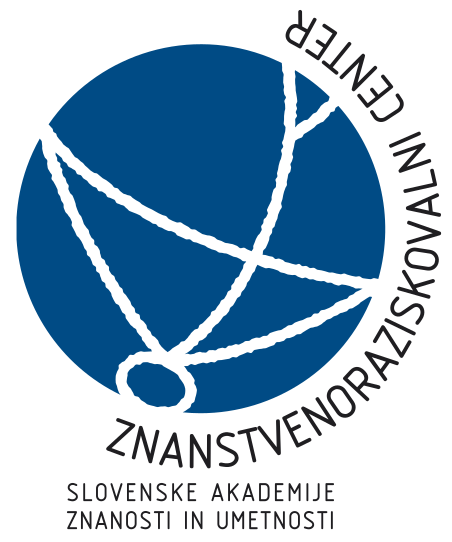Difference between revisions of "Karst Research Institute"
Anže Zorman (talk | contribs) |
(mwtool_article) |
||
| (6 intermediate revisions by 5 users not shown) | |||
| Line 1: | Line 1: | ||
{{Article | {{Article | ||
| − | | status = | + | | status = NIFERTIK! |
| maintainer = Anže Zorman | | maintainer = Anže Zorman | ||
}} | }} | ||
| Line 9: | Line 9: | ||
| street = Titov trg 2 | | street = Titov trg 2 | ||
| town = SI-6230 Postojna | | town = SI-6230 Postojna | ||
| + | | map= http://www.openstreetmap.org/?lon=14.21343&lat=45.77587&zoom=16&layer=mapnik | ||
| mailing address = Znanstvenoraziskovalni center, Slovenska akademija znanosti in umetnosti (ZRC-SAZU), P O Box 306, SI-1001 Ljubljana, Slovenia | | mailing address = Znanstvenoraziskovalni center, Slovenska akademija znanosti in umetnosti (ZRC-SAZU), P O Box 306, SI-1001 Ljubljana, Slovenia | ||
| telephone = 386 (0) 5 700 1900 | | telephone = 386 (0) 5 700 1900 | ||
| Line 21: | Line 22: | ||
| email = slabe@zrc-sazu.si | | email = slabe@zrc-sazu.si | ||
}} | }} | ||
| + | |accounts= | ||
| + | https://www.facebook.com/IZRK.ZRC.SAZU/ | ||
}} | }} | ||
{{Teaser| | {{Teaser| | ||
| − | [[ | + | The [[Karst Research Institute]] is a part of the [[Scientific Research Centre (ZRC SAZU), Slovene Academy of Science and Arts|Scientific Research Centre (ZRC SAZU)]] at the [[Slovene Academy of Sciences and Arts (SAZU)]]. The focus of the institute's research are both the specific Slovenian region of the Karst, or ''Kras'' in Slovene, as well as the karst as a geomorphological phenomena. It studies its hydrology, geology, morphology, ecology, microbiology and speleology, as well as the history of "karstology". The institute's researchers come from various scientific backgrounds, including geology, geography, physics, chemistry, biology, and microbiology, thus enabling a multidisciplinary approach. |
| − | The | + | The institute's research includes field studies, laboratory investigations and numerical modelling. It conducts both basic and applied studies. Several of the institute's researchers are lecturers in the postgraduate Karstology programme offered by the [[University of Nova Gorica]], which in 2014 became the UNESCO Chair on Karst Education. |
}} | }} | ||
==Background== | ==Background== | ||
| − | Karst is a landmark of Slovenia. Almost half of the country is karstic, with about 8,000 registered caves. More than half of the population is supplied by karst waters. The international term karst is derived from the name of | + | Karst is a landmark of Slovenia. Almost half of the country is karstic, with about 8,000 registered caves. More than half of the population is supplied by karst waters. The international term karst is derived from the name of the Slovenian region Kras, an area also regarded as the cradle of the scientific discipline karstology. This has become a complex multidisciplinary science, covering a wide range of earth sciences related to karst. |
| − | A long tradition of excellent research and a unique position at the heart of classical karst have established the | + | A long tradition of excellent research and a unique position at the heart of classical karst have established the Karst Research institute as one of the most recognised karstological centres in the world. |
| − | == | + | ==The institute's activities== |
| − | The | + | The institute hosts a karstological library, one of the most complete of its kind, a laboratory specialising in water chemistry, a geological laboratory, and a lecture room with modern presentation equipment. Some of the recent research projects undertaken at the institute deal with the sustainability of water resources, the overlappings of natural and cultural heritage, the protection of drinking water resources, the climatic systems in karst caves, and so on. |
| − | The institute has a book series called Carsologica and published a journal titled Acta carsologica. The series includes titles from various fields of karst | + | The institute has a book series called ''Carsologica'' and has published a journal titled ''Acta carsologica''. The series includes titles from various fields of karst research including (but not limited to) karst geology, hydrology, geomorphology, the history of the karst science biospeleology, engineering in karst, and development challenges in karst regions. |
| Line 55: | Line 58: | ||
[[Category:EU funding of Slovene organisations (Culture and MEDIA Programmes)]] | [[Category:EU funding of Slovene organisations (Culture and MEDIA Programmes)]] | ||
[[Category:EU Culture funding recipient]] | [[Category:EU Culture funding recipient]] | ||
| + | [[Category:Natural heritage]] | ||
| + | [[Category:Education_and_Research]] | ||
Latest revision as of 01:44, 19 February 2021
Background
Karst is a landmark of Slovenia. Almost half of the country is karstic, with about 8,000 registered caves. More than half of the population is supplied by karst waters. The international term karst is derived from the name of the Slovenian region Kras, an area also regarded as the cradle of the scientific discipline karstology. This has become a complex multidisciplinary science, covering a wide range of earth sciences related to karst.
A long tradition of excellent research and a unique position at the heart of classical karst have established the Karst Research institute as one of the most recognised karstological centres in the world.
The institute's activities
The institute hosts a karstological library, one of the most complete of its kind, a laboratory specialising in water chemistry, a geological laboratory, and a lecture room with modern presentation equipment. Some of the recent research projects undertaken at the institute deal with the sustainability of water resources, the overlappings of natural and cultural heritage, the protection of drinking water resources, the climatic systems in karst caves, and so on.
The institute has a book series called Carsologica and has published a journal titled Acta carsologica. The series includes titles from various fields of karst research including (but not limited to) karst geology, hydrology, geomorphology, the history of the karst science biospeleology, engineering in karst, and development challenges in karst regions.
See also
- Slovene Academy of Sciences and Arts (SAZU)
- Scientific Research Centre (ZRC SAZU), Slovene Academy of Science and Arts
- Slovene Academy of Sciences and Arts (SAZU) Library
External links
- Karst Research Institute website
- Appointing of the First UNESCO Chair in Slovenia, an article on the University of Nova Gorica website




